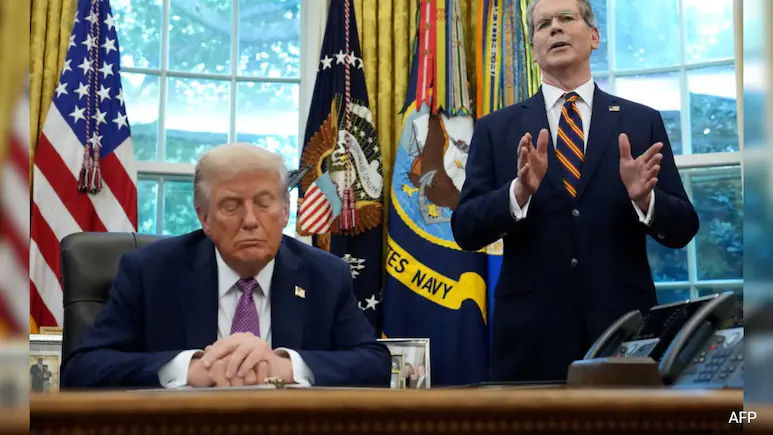The Trump administration is carving out a new direction for the H-1B visa program, framing it as a temporary “knowledge transfer” initiative rather than a pathway for long-term foreign employment in the United States. Treasury Secretary Scott Bessent explained the shift in a Fox News interview, saying foreign workers would be brought in for a limited period—three, five or seven years—to train Americans for high-skill jobs before returning home.
The approach marks a significant departure from past administrations and aligns with President Donald Trump’s broader push to reshape America’s industrial base by repatriating critical sectors such as semiconductors, advanced manufacturing and shipbuilding. Bessent argued that the United States lacks enough domestic talent in these fields after decades of offshoring. “An American can’t have that job—not yet,” he said, adding that foreign specialists are needed to rebuild industries that have been dormant for years.
According to Bessent, bringing in overseas experts to train American workers is essential to restoring domestic production capacity. “We can’t snap our fingers and have ships or precision manufacturing return overnight,” he said. “Overseas partners coming in and teaching American workers—that’s a home run.”
Trump himself recently defended the need for foreign talent despite his administration’s aggressive stance on immigration, acknowledging that certain high-skill areas require international expertise. Officials say the retooled H-1B strategy is meant to reduce long-term dependency on overseas labor while accelerating the growth of U.S.-based manufacturing hubs, including planned semiconductor facilities in Arizona.
The administration is also advancing a broader economic agenda centered around what Bessent called “Parallel Prosperity”—a strategy aiming for simultaneous growth on Wall Street and Main Street. He confirmed ongoing discussions about a possible USD 2,000 tariff rebate for families making under USD 100,000, presenting it as part of a plan to ensure households feel the benefits of Trump’s trade policies.
Bessent’s comments come as the U.S. government investigates alleged abuses of the H-1B system, with 175 probes already launched into possible misconduct. Critics have long argued that the program can be misused to replace American workers with cheaper foreign labor, a concern the administration says the new temporary-training model directly addresses.
Under the evolving policy, the White House insists that the goal is self-sufficiency: bring in the talent America needs today so that American workers can take over tomorrow.

